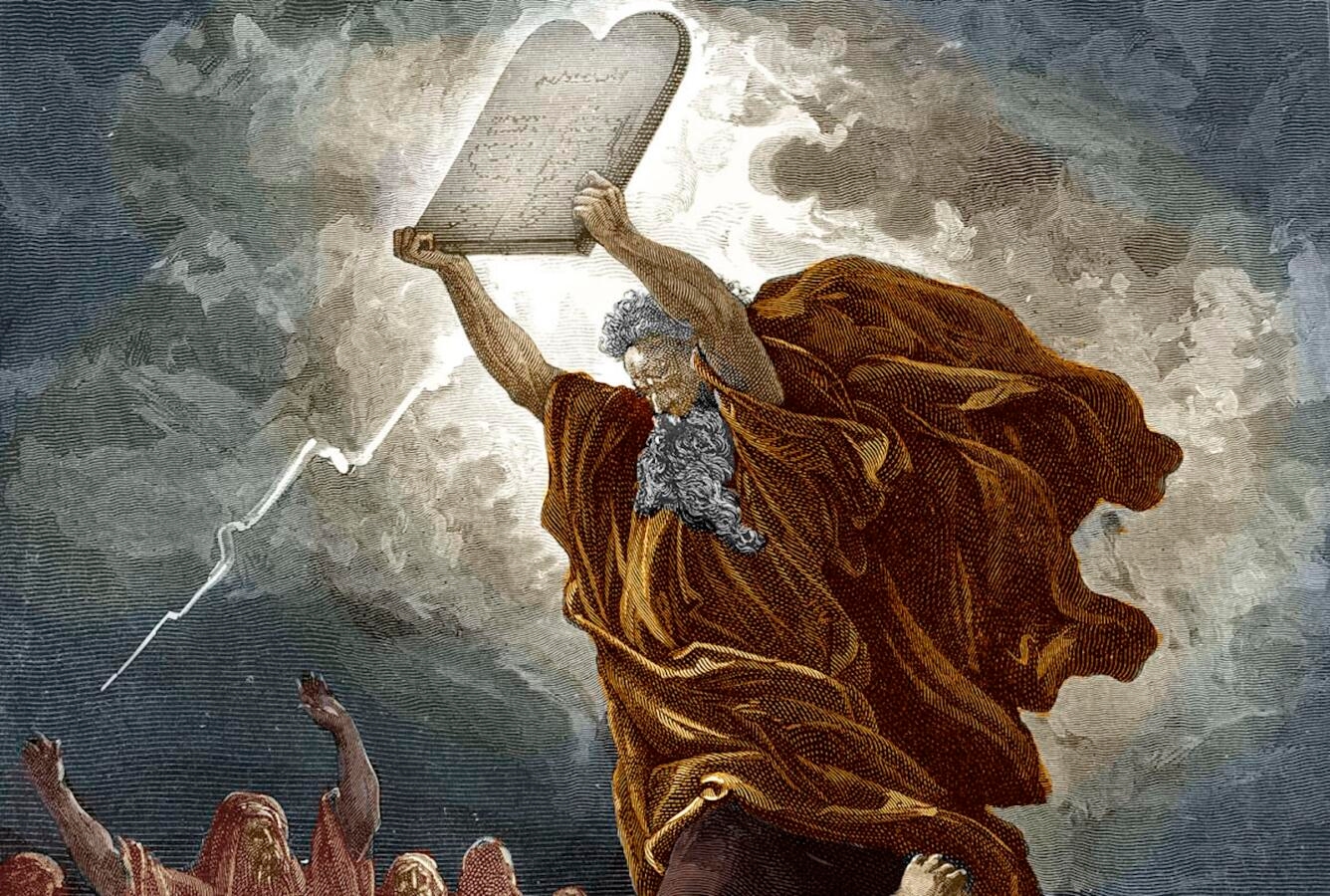Reading Parashat Yitro this week, I felt jealous. The Torah portion opens with stories about how God stepped in to save the Jewish people from their misery and deliver them to safety. Moses names his son Eliezer (literally “God is my help”) in gratitude for how God saved him from Pharaoh who, according to a midrash, personally took a sword to Moses’s throat. But the throat miraculously turned to stone, rendering Moses invincible. Wouldn’t that be nice, I think to myself, to have a God who would step in to save us from our enemies. A God to keep each of us safe.
It certainly doesn’t feel that way right now. We are in the thick of battle. But in the Torah, the people are not only safe, they are poised to receive divine revelation. Again, I feel the pang of jealousy. What wouldn’t we give to have God come down from the heavens and tell us what to do right now? How welcome would a moment of revelation be amidst all the uncertainty, hopelessness and existential loneliness so many of us feel about the state of the world — and in particular, the Jewish people — in this moment. Direct divine answers would be a real gift.
Then I realize something striking about this moment of revelation.The verses I usually understand as describing the ultimate moment of ecstatic religious experience suddenly seem to describe exactly our moment: “Now Mount Sinai was all in smoke, for God had come down upon it in fire; the smoke rose like the smoke of a kiln, and the whole mountain trembled violently.” (Exodus 19:18) This could be a description of the war zone of today — fire and smoke everywhere, the land itself trembling, thunderous noise. People cannot look away, but if they come too close, they will die. Like us, they are terrified.
Revelation doesn’t come in a moment of peace and calm, but amidst chaos and fear and trembling. There is smoke and fire and loud crashing noises all around as we receive the word of God.
With your help, My Jewish Learning can provide endless opportunities for learning, connection and discovery.
When the people at the base of Mount Sinai hear God’s words, they back away: “All the people witnessed the thunder and lightning, the blare of the horn and the mountain smoking; and when the people saw it, they fell back and stood at a distance.” (Exodus 20:15) It’s all just too much to take in. I empathize. But the people don’t give up. They instead ask Moses to step in and moderate, receiving the commandments on their behalf. Despite their fear, they find a way to hear the word of God.
And for all my wishful thinking, I realize this too: The word of God didn’t come in the form of answers. Even on Mount Sinai we don’t get — as people so desperately long for these days — only good news. What we get is the Ten Commandments. What we receive is a moral code by which to live. A to-do list. A must do list.
This is what revelation offers us. Not easy answers, but a responsibility to live with deep moral commitment. How do we observe the commandments not to murder and steal in a time of war? How do we hear them through the smoke and thunder? How do we abide by a binding moral code when we are all so filled with fear? This is a mighty challenge. But it is also a gift.
I have lately had the honor of recording weekly conversations with Rabbi Avital Hochstein about how to remain spiritually grounded in this time of war. When I asked Avital, the mother of two soldiers currently serving in the Israeli army, if she had any advice, she answered: “We have to raise our kids with the values we believe in, and send them into the army trusting that those values will guide them and will be a compass.”
Like the people at the foot of the mountain, we too are overwhelmed. Fire and smoke seem to be everywhere. What do we have to hold on to? Our values. Our Torah. Our moral code. The Israelites found a way to hear the commandments amidst the storm, and so too must we.
This article initially appeared in My Jewish Learning’s Shabbat newsletter Recharge on Feb. 3, 2024. To sign up to receive Recharge each week in your inbox, click here.



